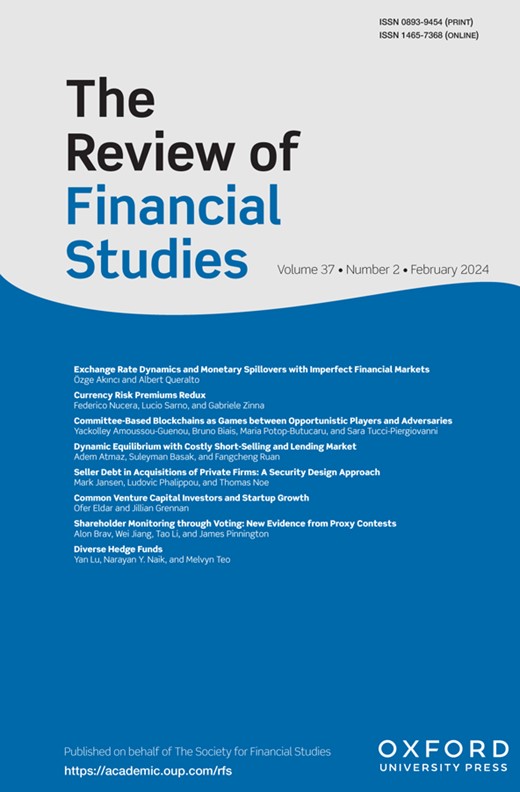金融混乱与创新组织:来自大萧条的证据
IF 6.8
1区 经济学
Q1 BUSINESS, FINANCE
引用次数: 6
摘要
我们利用一个世纪以来美国专利的数据和利用危机严重程度的地区差异的差异设计来研究大萧条之后的创新。受影响较重的地区的独立专利申请数量持续大幅下降,这主要反映了危机期间融资渠道的中断。对于年轻、缺乏经验的发明家和质量较低的专利来说,这种下降幅度更大。相比之下,大公司的创新有所增加,尤其是在年轻和缺乏经验的发明家中。总的来说,大萧条导致了技术创业精神的下降,加速了创新向大公司的转移。本文章由计算机程序翻译,如有差异,请以英文原文为准。
Financial Disruptions and the Organization of Innovation: Evidence from the Great Depression
We examine innovation following the Great Depression using data on a century's worth of U.S. patents and a difference-in-differences design that exploits regional variation in the crisis severity. Harder-hit areas experienced large and persistent declines in independent patenting, mostly reflecting the disruption in access to finance during the crisis. This decline was larger for young and inexperienced inventors and lower-quality patents. In contrast, innovation by large firms increased, especially among young and inexperienced inventors. Overall, the Great Depression contributed to the decline in technological entrepreneurship and accelerated the shift of innovation into larger firms.
求助全文
通过发布文献求助,成功后即可免费获取论文全文。
去求助
来源期刊

Review of Financial Studies
Multiple-
CiteScore
16.00
自引率
2.40%
发文量
83
期刊介绍:
The Review of Financial Studies is a prominent platform that aims to foster and widely distribute noteworthy research in financial economics. With an expansive editorial board, the Review strives to maintain a balance between theoretical and empirical contributions. The primary focus of paper selection is based on the quality and significance of the research to the field of finance, rather than its level of technical complexity. The scope of finance within the Review encompasses its intersection with economics. Sponsoring The Society for Financial Studies, the Review and the Society appoint editors and officers through limited terms.
 求助内容:
求助内容: 应助结果提醒方式:
应助结果提醒方式:


